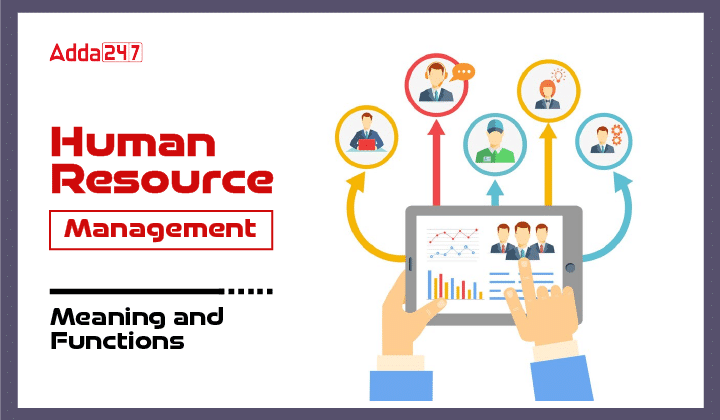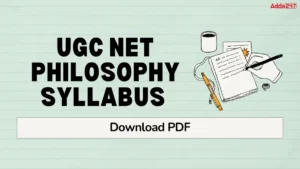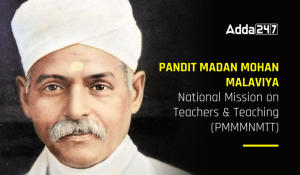Table of Contents
An organization is a group of people established either formally or informally for the attainment of certain objectives. So, people are the foundation of any organization. In a societal context, organizations need people and people need organizations. In this article, we will discuss in detail the meaning of human resource management, its nature and different functions.
Human Resource Management Overview
Persons associated with an organization are referred to as human resources. Human resources include everyone from the CEO, who is responsible for the overall effectiveness of the organization, to the custodian who cleans the offices after everyone else goes home. Simply, the overall management of such personnel in an organization is called human resource management (HRM). It is concerned with philosophy, principles, policies and practices related to the human aspect of management.
Meaning and Definition of Human Resource Management
Human resources (HR) are the people that an organization employs to carry out various jobs, tasks, and functions in exchange for wages, salaries, and other rewards. Human resource management can be defined as, ” employing people, developing their resources, utilizing maintaining and compensating their services in tune with the job and organizational requirements”
Human resource management (HRM) refers to the comprehensive set of managerial activities and tasks concerned with developing and maintaining qualified workforce resources in ways that contribute to organizational effectiveness.
Nature of Human Resource Management
HRM is concerned with managing people in organizations. It aims at achieving organizational objectives through the efficient and effective mobilization of human resources. Below are the major characteristics of HRM:
- An inherent part of management is selecting people, training, motivating, and appraising their performance to improve their quality.
- Pervasive function in all levels of mg in an organization
- Action oriented-solve problems through rational(balanced) policies rather than record-keeping
- People-oriented HRM is all about people at work. Assign jobs, produce results, reward, and motivate them towards improvements in productivity
- Future oriented-Effective HRM helps the organization meet its goals
- Development oriented-HRM develops the full potential of employees through reward, training, job rotation
- Integrating mechanism: HRM maintains cordial relationships between people working at various levels in the organization.
- Comprehensive function: The workforce signifies people working at all levels, HRM differs in form & shape but the basic objective of effective utilization of human resources remains the same.
- Continuous function: HRM is not a one-shot deal it requires constant awareness and alertness of human relations in everyday operations.
- Based on human relations: Every person has different needs, perceptions and expectations. The manager should give due attention to these factors.
Difference Between Personnel Management & Human Resource Management
In the following table, candidates will find the basic difference between Personnel Management and Human Resource Management in detail. The candidates will find all the basic differences along with the distinguishing factors that set apart the two concepts.
| Difference Between Personnel Management & Human Resource Management | ||
|---|---|---|
| Difference | Personnel Management | Human Resource Management |
| Meaning | It means management of people employed | It means management of employee’s skills, abilities, knowledge, and talents. Aptitude etc. |
| Treatment of employees | Employees are treated as economic men and their services are exchanged for wages and salary. | Employees are treated as economic, social and psychological men. |
| Centre of control |
It is Cost centered therefore management tries to control the cost | It is profit-centered therefore investments in human resources for future utility purposes |
| Mutual benefit | Employees are used for organizational benefit. | In HRM, employees are used for mutual benefit. |
| Type of function | Personnel function is treated as an auxiliary function i.e. no separate function or department it is treated as routine work. | It is treated as upper-level management forms strategic function i.e. proper strategies. |
Functions of Human Resource Management
A human resource professional needs to gain experience in the majority of these functional areas to become an effective professional. The following are the major functions constituting the whole human resource management process
Human Resource Planning
To handle future uncertainties HR managers need to get involved in human resource planning. Examples of human resource planning activities include ascertaining the number of employees required for carrying out regular business, how to… downsize a certain number of employees when an organization faces a tough external situation, how to prepare the organization for future expansion projects, and success- sion planning.
Recruitment and Selection
After planning comes recruitment and selection. HR professionals have to think about how to attract potential employees, how to take selection tests, whether the selection tests are reliable or valid and how to ensure the new employee orientation.
Training and Development
To enhance employees’ knowledge, skills, and attitudes, various training and development activities are initiated by the HR Department.
Performance Management
Goal setting for employees, appraising employees, and giving feedback are the prime activities under the performance management system through which employees’ performance gets measured and monitored. HR professionals with the help of line managers carry out the performance of employees. management
Compensation Management
One of the major tasks of HR professionals is to determine and monitor the monetary and non-monetary benefits of employees to recognize employees’ contributions toward the organization.
Career Management and Development
For employees’ further progression and sustenance in the organization HR professionals are expected to spend a considerable amount of time on career management and development of employees.
Employee Relations/Industrial Relations
Industrial relations (IR) can be defined as relationships between employers, employees, and their representatives (union) and the government. For maintaining overall industrial peace and harmony, HR professionals- also are supposed to be acquainted with the laws of the land, handle employee grievances, and ensure no work stoppages happen due to industrial unrest.
There are debates about whether industrial relations should be considered within the purview of human resource management or should be treated as a separate discipline. We believe that for effective human resource management, organizations cannot ignore effective labor management, and hence industrial relations should also be considered as one of the basic functions of HRM.
Managing Diversity at the Workplace
Employees differ in many ways, in terms of age, race, gender, ability, sexual orientation, and socio-psychological background. Managing these diverse groups of employees becomes an important function of human resource professionals.
Conclusion
In a nutshell, the role of human resource management has become quite important. This results partly from a growing realization of the importance of people as a source of competitive advantage, but there are also more practical reasons.
Download UGC NET Commerce Study Notes PDF
The direct Link to Download UGC NET Commerce Study Notes PDF has been mentioned below. Candidate can download Human Resource Management Study Notes PDF which has been mentioned below.




 UGC NET Philosophy Syllabus 2025 PDF Dow...
UGC NET Philosophy Syllabus 2025 PDF Dow...
 UGC NET Commerce Syllabus 2025 PDF Downl...
UGC NET Commerce Syllabus 2025 PDF Downl...
 PMMMNMTT for NEP 2020, Check details Her...
PMMMNMTT for NEP 2020, Check details Her...














